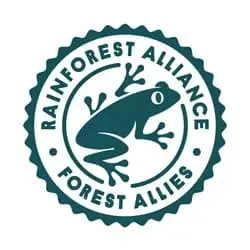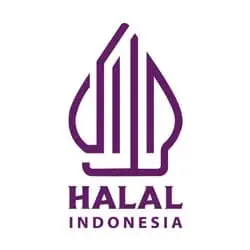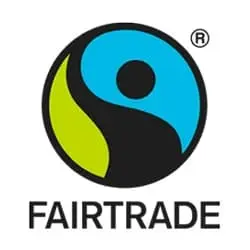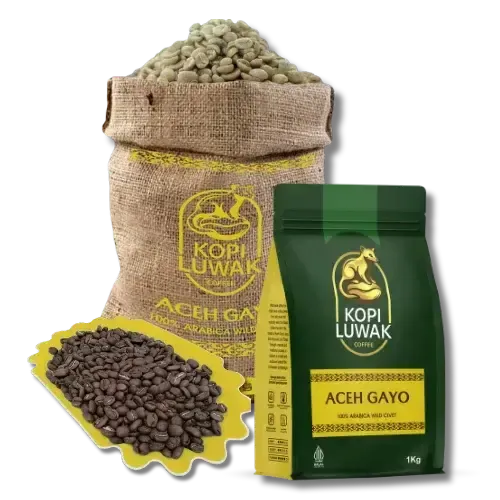
Aceh Gayo Luwak
From $49
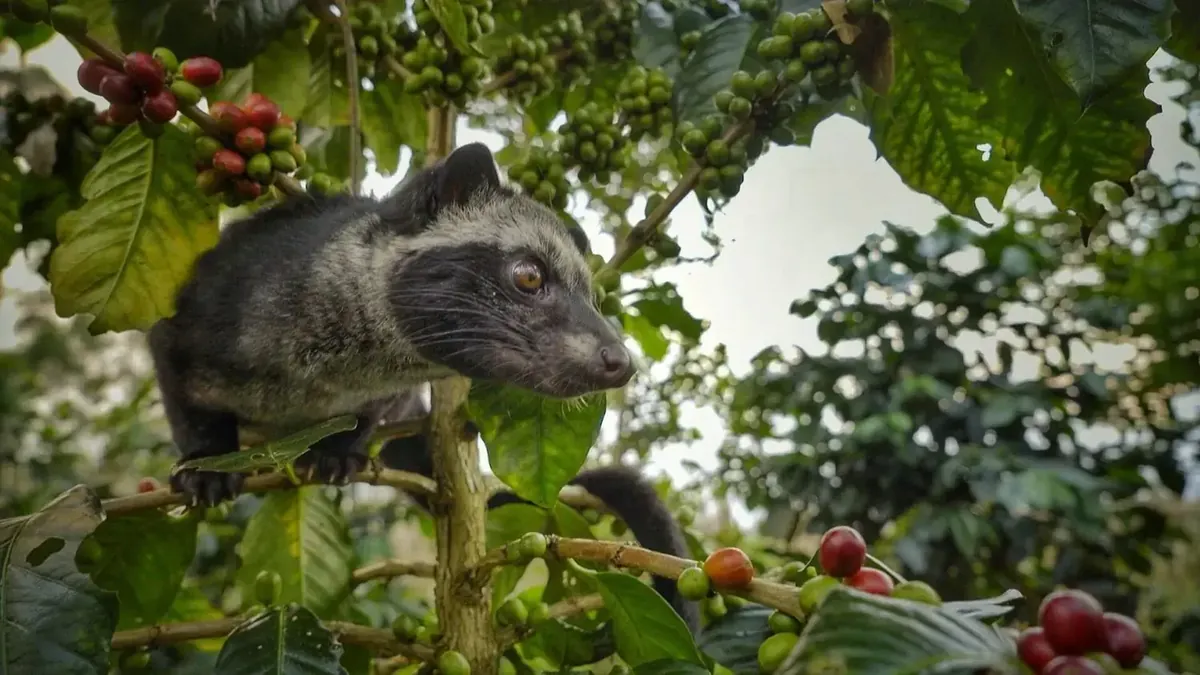
KopiLuwak.coffee is your trusted global supplier of authentic Indonesian wild Luwak coffee, offering both green beans and premium roasted beans for roasters, and specialty coffee traders.

From $49
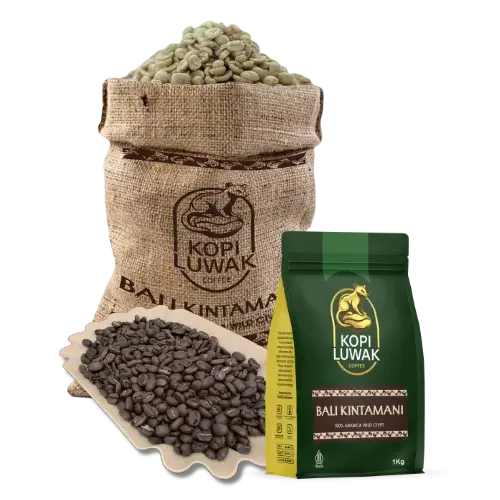
From $49
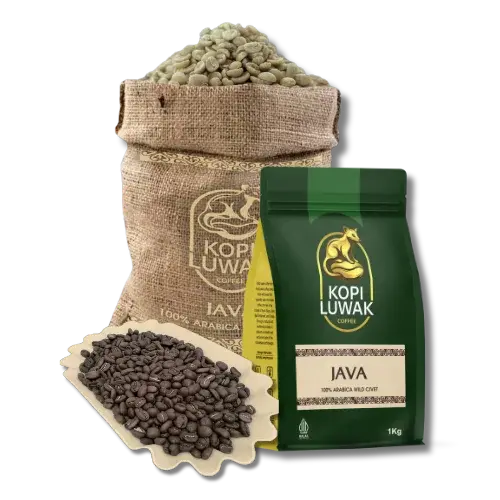
From $49
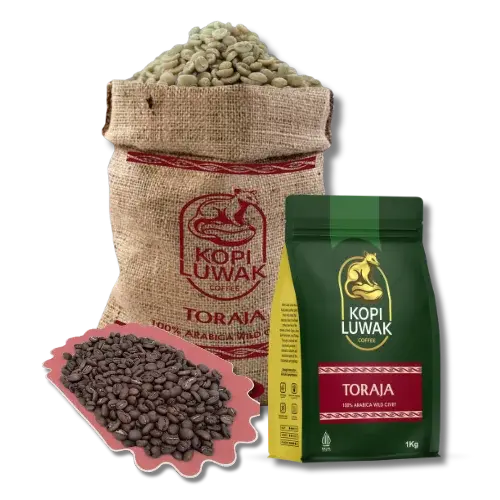
From $49
Welcome to KopiLuwak.coffee, your premier source for the most authentic wholesale wild Kopi Luwak...
Shop Now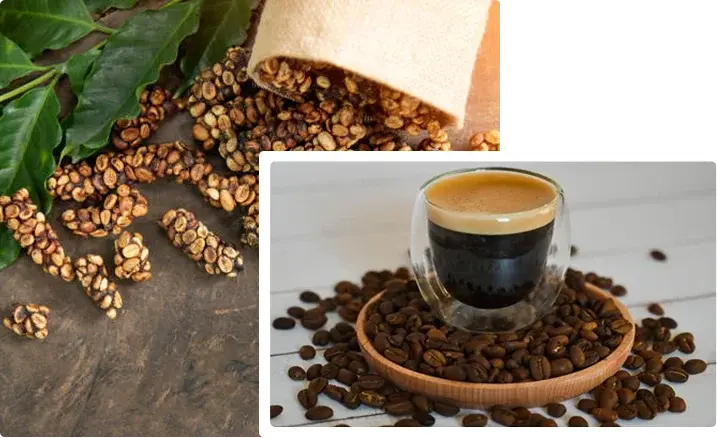
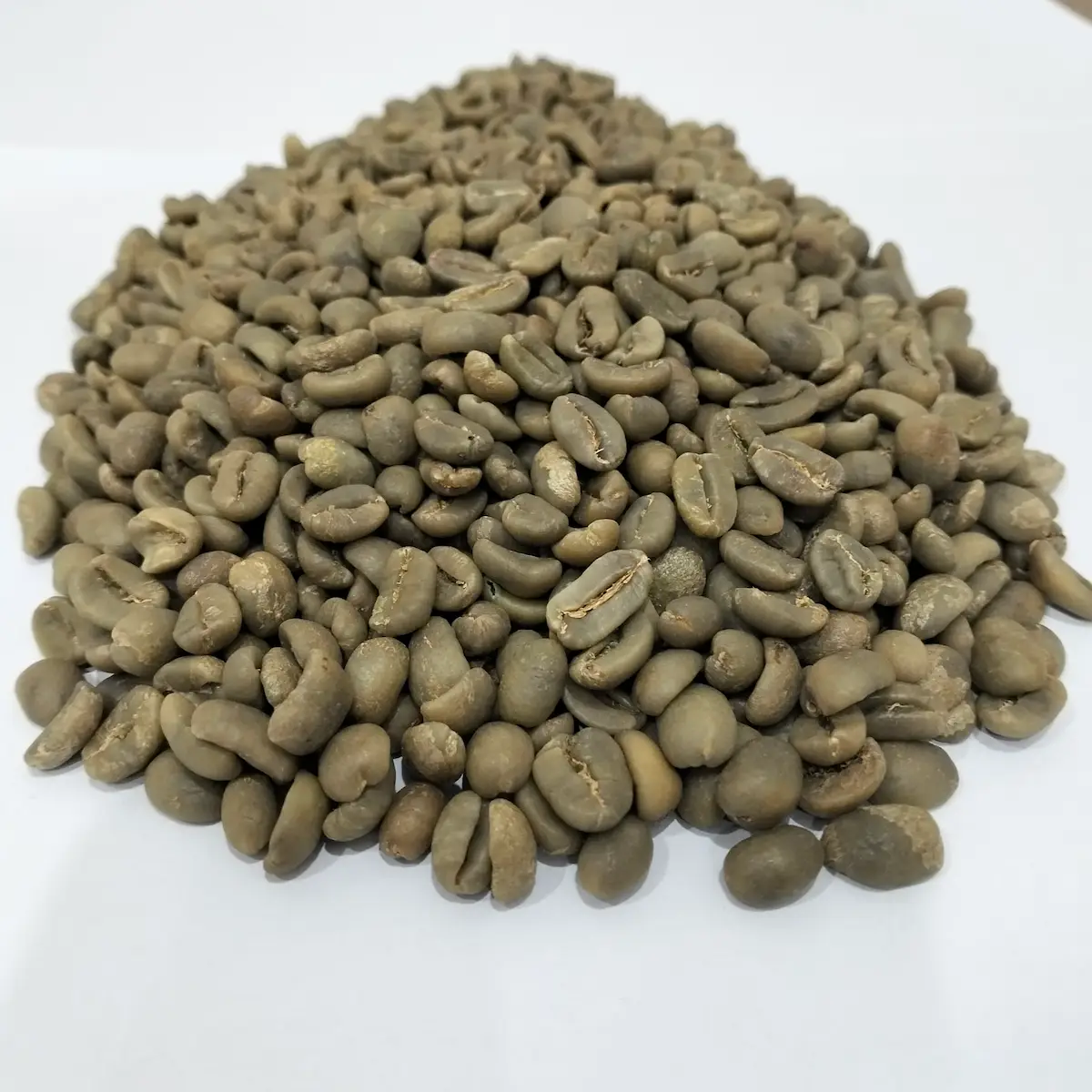
It’s a legacy rooted in nature, tradition, and wild civet craftsmanship...
Read Our Story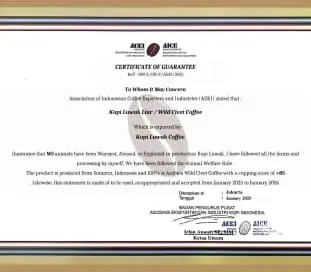
We recognize that authenticity and quality are essential for building trust...
DetailsWe specialize in direct sourcing of wild civet coffee from certified micro-lots in Sumatra, Java, Bali and Sulawesi, delivering traceable, ethical, and specialty-grade kopi luwak ready for global export.
We guarantee 100% authentic wild Kopi Luwak. Every product is officially certified to prove its purity without any blends.
We guarantee 100% authentic wild Kopi Luwak. Every product is officially certified to prove its purity without any blends.
We only use the finest quality Arabica beans, which are freshly roasted to order to ensure maximum freshness and aroma upon arrival.
Our coffee beans come from wild civets in their natural habitat, not from cruel caged farming. Your choice supports fair and eco-friendly practices.
Whether you’re a specialty coffee roaster, distributor, or gourmet brand, KopiLuwak.coffee gives you direct access to the world’s most luxurious coffee — responsibly sourced from Indonesia.
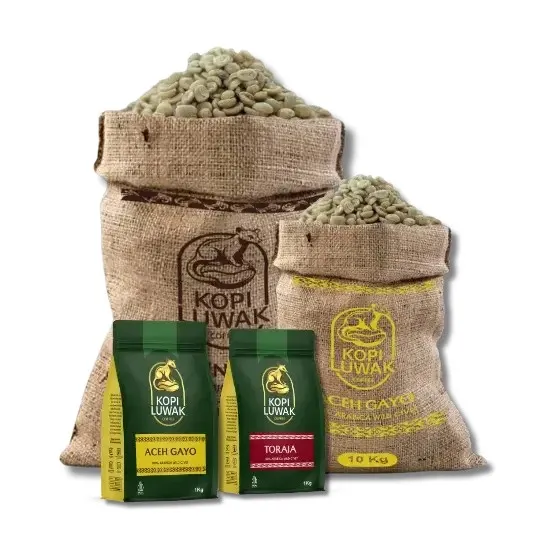
Pertama kali cobain Kopi Luwak disini, rasanya beda banget dari kopi biasa. Aromanya khas, lembut, dan finishnya bersih, terutama varian Aceh Gayo...
You can buy Luwak Coffee here. Good taste!
Grateful to be able to buy wild civet coffee at Kopiluwak.coffee. The products they sell are very good.
Grateful to be able to buy wild civet coffee at Kopiluwak.coffee. The products they sell are very good.
Deep in the misty mountains of Aceh, wild civets begin a process no machine can replicate. A journey of nature, patience, and untouched beauty — all captured in every bean.
Discover MoreIndulge in the unique experience of Kopi Luwak, the world’s most exclusive coffee.
Discover
its smoother flavor, lower acidity, and distinctive aroma. Savor the rare and luxurious
coffee experience.
1. Exceptionally Smooth Flavor
The fermentation process in the civet's digestive tract breaks down proteins and alters
the
amino acid composition of the coffee beans...
2. Lower Acidity
Kopi Luwak generally exhibits lower acidity levels than standard coffee...
3. Unique and Complex Aroma
The enzymatic processes during digestion impart a distinctive aroma...
4. A Rare and Luxurious Experience
Due to the unique and labor-intensive production process, Kopi Luwak is considered a
rare
and luxurious coffee. Sipping a cup is an indulgence and a conversation starter.
5. Contain Higher Levels of Citric Acid and Inositol
Studies have shown that Kopi Luwak may have a higher concentration of citric acid and
inositol compared to conventional coffee. These compounds are known for potential health
benefits, although further research is needed.
Cat poop coffee is a delicacy, primarily due to its distinctive taste profile. Cat poop
coffee undergoes fermentation in the digestive system of civet cats, similar to the
stomachs
of ruminants, where bitter compounds are broken down, resulting in a milder coffee with
less
acidity. Civet cat coffee has an aftertaste slightly different from regular coffee.
A second reason why it has been granted a protected status is because of its incredibly
rare
quality. Civet cats create a very selective, small amount of coffee, and the beans need
to
be removed by hand from the animal’s faeces over an extensive period.
This rare and selective harvesting, combined with the small scale of production,
contributes
to the high price of cat poop coffee, making it an exclusive luxury item.
The cultural and historical appeal of civet cat coffee further enhances its status as a
delicacy. Hailing from Southeast Asia, a region where the practice has always been
associated with coffee production methods in the area, it holds an air of mysticism. The
history and production of cat shit coffee make this coffee all the more exclusive,
interesting and sought after by true coffee lovers who want to taste what few other
people
can offer.
Yes, civet coffee is generally safe to drink regularly, as long as the beans are properly
cleaned and roasted at high temperatures. Since the beans are washed before fully
roasted,
there is no hash pathogen introduced to them during the digestion process of the Asian
palm
civet. It roasts the beans at high temperatures to kill bacteria and contaminants,
sterilising the final product so it’s safe to consume.
Health research indicates that properly prepared civet coffee poses no greater risk than
regular coffee. Research has shown that roasting coffee beans at higher temperatures
than
200 °C helps to eliminate harmful microorganisms. After being harvested, the beans are
thoroughly washed to remove any contaminants that could pose risks, making them devoid
of
extraneous materials.
However, even though the coffee is safe to drink, it has been criticised by some over
ethical and environmental issues with asian palm civet coffee. In certain unethical
production practices, civets may be kept in captivity and force-fed coffee cherries,
which
can be detrimental to their health and the environment. For that reason, selecting from
some
reliable resources with ethical production procedures is equally important to ensure the
safety and endurance of your coffee.
In the end, when civet coffee is sourced responsibly and prepared properly, it is safe
to
drink regularly. As with any specialty coffee, it’s essential to ensure quality control
in
both the production and roasting processes to guarantee a safe and enjoyable experience.
Yes. Kopi luwak is halal. Its initial contact with the fecal elements does not make it
haram,
as the beans remain intact, protected, and can be purified through washing. Therefore,
both
consumption and trade of kopi luwak are allowed in Islam.
According to
Fatwa
of the Indonesian Ulema Council (MUI) No. 07/2010, kopi luwak is halal
to
consume, produce, and trade, with the following stipulations:
Status of the bean
Coffee beans excreted by civets are classified as mutanajjis (objects that have come
into
contact with impurity), not inherently najis.
Conditions of purit
Kopi luwak is crafted from coffee cherries that have been consumed and then defecated by the Asian palm civet (luwak). The civets’ digestive enzymes influence the beans’ flavor.
The Luwak, or Asian palm civet, primarily eats coffee cherries. They are known to select the ripest and sweetest cherries, contributing to the quality of the final Kopi Luwak product. Their diet is however, not limited to coffee cherries. They also eat insects, small reptiles and fruits.
“Cat poop coffee” is the nickname for kopi luwak, also known as civet coffee. It doesn’t
fully mean the Kopi Luwak made from cat poop, but from coffee beans that pass through
the
digestive system of the Luwak. The presence of fecal elements attached to the beans,
which
look like poop, sometimes makes people think it’s fully made from cat poop.
How is Kopi Luwak made from Animal Droppings?
The process of how it is made, long story short, the Lopi Luwak animal is eating the
coffee
cherry from the coffee plantation, digests it, poop it, and the local collector or
farmers
pick up the feces from the ground or rotten pile of cut trees, as this is the favorite
spot
for them to poop.
Here’s the top-down process of Kopi Luwak:
1. THE COFFEE TREE & CHERRY
The coffee tree produces cherries, the natural fruit that contains the coffee seed
inside.
Besides bananas and papayas, coffee cherries are one of the luwak’s favorite foods.
Coffee
beans themselves are actually seeds, protected by a thick shell, with caffeine serving
as
the plant’s defense mechanism. However, the sweetness of the ripe cherries makes them
irresistible to the palm civet.
2. LUWAK / THE PALM CIVET
The Asian palm civet (luwak) is a small nocturnal mammal from the Viverridae family.
Guided
by its sharp sense of smell, the luwak instinctively chooses only the ripest, sweetest
cherries. This natural selection ensures that only the highest-quality cherries continue
into the process.
3. THE DIGESTION
When the luwak eats the coffee cherries, the fruity pulp is digested, while the coffee
beans
remain intact and pass safely through the animal’s stomach and intestines. The beans are
shielded by their outer shell, preventing damage or contamination.
4. THE FECES
After about 24 hours, the beans are excreted along with the luwak’s feces. Farmers
carefully
collect these droppings, recognizing them as highly valuable. Despite their unusual
origin,
the beans inside remain clean and safe to process because of their protective layers.
5, THE FINISHING
Once collected, the beans are thoroughly washed with clean water to remove impurities.
They
are then dried under the sun to reach the proper moisture level. After drying, the beans
are
hulled to remove the parchment layer, sorted for quality, and finally roasted. The
result is
a rare and distinctive coffee ready to be ground, brewed, and enjoyed.
How does Poop Coffee go through the Fermentation Process?
Inside the civet’s digestive system, the coffee beans undergo a natural fermentation.
While
the fruit pulp is broken down and absorbed, the beans themselves remain intact but are
exposed to digestive enzymes.
These enzymes alter the chemical composition of the beans by:
1. Breaking down proteins → reduces bitterness.
2. Modifying sugars → enhances sweetness and smoothness.
3. Lowering acidity → results in a milder, less sharp taste.
This transformation is what gives Kopi Luwak its distinctive profile: smoother body,
unique
aroma, and a clean finish that is unlike regular coffee. The process happens naturally
within 24 hours, after which the beans are excreted, collected, and processed further
Imagine sipping a brew made from beans that a monkey just snacked on and spat out. How
would
that compare to the infamous civet-derived Kopi Luwak? Both involve animals, but they
differ
in production, flavor, ethics, and price.
Comparison Table
Aspect Luwak Coffee (Kopi Luwak) Monkey “Poop” Coffee (Spit Coffee)
Production Beans are eaten, digested, and excreted by the Asian palm civet. Enzymes in
digestion ferment the beans. Beans chewed by monkeys, spat out. Partial fermentation
from
saliva.
Flavor Smooth, earthy, low-acid; sometimes marketed as “luwak white coffee.” Clean,
fruity,
chocolatey; less acidic.
Ethics Certified farms and some free-range practices exist, but caged civet farms raise
welfare concerns. Monkeys roam free; beans are collected naturally after spitting.
Price Luxury product: $100+ per cup; $250–$600 per pound. Extremely rare: $100–$500 per
pound.
Availability More widely distributed and better regulated than monkey coffee. Very
limited
supply; flavor is inconsistent by region.
Bottom Line
Civet coffee delivers the legend of digestive fermentation and a smooth, earthy profile
backed by luxury branding.
Monkey coffee is a wild novelty with fruity, chocolatey notes, but it is much rarer and
less
consistent.
Question: Would you rather sip beans that passed through a civet’s digestion, or those
chewed and spit out by monkeys?
Kopi Luwak Coffee is one of the most expensive coffees in the world due to its unique process...
You can order Kopi Luwak Coffee directly from our online store or visit our showroom...
You can order Kopi Luwak Coffee directly from our online store or visit our showroom...
